-
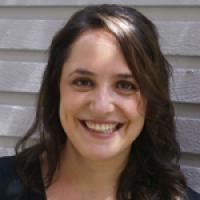
Efrat Arbel, Assistant Professor at the Peter A. Allard School of Law
Phone: 604-822-6287 / email: arbel@allard.ubc.ca
Allard Hall profileMy research engages a study of constitutional law that is located at the intersection of three different fields of law: refugee law, prison law, and Aboriginal law. Through case studies in each field, I examine how Canadian constitutional law governs the rights entitlements of refugees, prisoners, and Aboriginal persons, and what this reveals about the limits – and possibilities – of Canada's constitutional order. Combining my academic work with legal practice, I am also engaged in advocacy and litigation involving refugee and prisoner rights, and serve on the executive of the Canadian Association of Refugee Lawyers. I teach a variety of JD courses at the Allard School of Law, and also supervise graduate students.
-
-
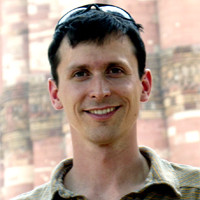
Ivan Beschastnikh, Assistant Professor at the Department of Computer Science
email: bestchai@cs.ubc.ca
WebsiteI am interested in analysis and construction of complex software systems. Recently, I have worked on questions like: how can we mitigate bugs in software? How can we make it easier to create and deploy software? How can we use information about how software is utilized by users to improve its quality, or to draw conclusions about users? I am most excited about the domain of distributed systems --- software that powers major websites, stores most of the world's information, and is becoming increasingly critical to our modern lives. I enjoy building and studying real systems and tend to be empirical in my research.
-
-
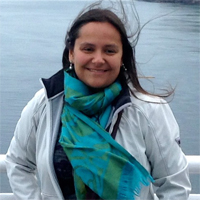
Vanessa De Oliveira Andreotti, Associate Professor; Canada Research Chair in Race, Inequalities and Global Change at the Department of Educational Studies
Phone: 604-827-1577 / email: vanessa.andreotti@ubc.ca
WebsiteI am an associate professor at the Department of Educational Studies and I hold a Canada Research Chair in Race, Inequalities and Global Change. My research focuses on analyses of historical and systemic patterns of reproduction of inequalities and how these limit or enable possibilities for collective existence and global change. I have extensive experience working across sectors internationally in areas of education related to international development, global citizenship, indigeneity and social accountability. This work involves examining educational discourses and designing viable pedagogical pathways to address problematic patterns of international engagements, and flows and representations of inequality and difference in education.
-
-
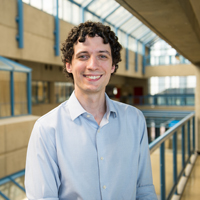
Darko Odic, Assistant Professor at the Department of Psychology
Phone: 604-827-0621 / email: darko.odic@ubc.ca
WebsiteSome things are easily learned, even without instruction (e.g., understanding language). But other things - perhaps most things - are difficult to learn, and require constant practice, instruction, and feedback (e.g., mathematics, writing). Why? My research suggests that learning is not the consequence of talent, practice, or time, but rather the consequence of how all our minds are programmed to work. To explore this issue, my lab focuses on two case-studies: young children's acquisition of language (e.g., words like "more", "eight", etc.) and the acquisition of formal mathematics. For example, children's innate intuitions about number - those used, for example, when guessing how many marbles are in a jar - actively support the acquisition of some concepts (e.g., addition and subtraction), but also make the acquisition of others difficult (e.g., number words like "fifteen"). By understanding the structure of children's minds and documenting cases where learning both aligns and misaligns with this structure, we hope to make learning easier and more efficient for everyone.
-
-
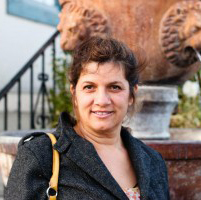
Judith Paltin, Assistant Professor at the Department of English
email: judith.paltin@ubc.ca
WebsiteMy current research focuses on crowds in British and Irish modernism (especially in literature) and on modern and contemporary theories of collective identification and action. I also have more general interests in critical and cultural theory, literature and mind, literature and environment, and critical university studies. At UBC, I am teaching courses in modern British and Irish literature, modernist studies and general theory, alongside specialized undergraduate and graduate courses in my research fields. In the past, I have taught music and Latin at the secondary level, and have done a fair bit of choral conducting and choral singing, as well as studying piano and classical guitar.
-
-
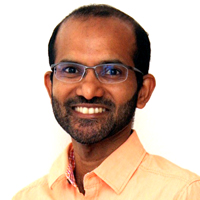
Navin Ramankutty, Professor at the Liu Institute for Global Issues and Isntitute for Resources, Environment, and Sustainability
Phone: 604-827-1745 / email: navin.ramankutty@ubc.ca
WebsiteI am a Professor at UBC jointly appointed at the Liu Institute for Global Issues and Institute for Resources, Environment, and Sustainability. I am broadly interested in addressing problems related to global environmental change and food security. People working in my research group address questions such as: Where is cultivation and cattle ranching expanding in South America and which ecosystems are they replacing? How does the production, environmental, and livelihood outcomes of organic agriculture compare to conventional agriculture? Is urban agriculture a viable solution for feeding 9 billion? And more broadly, why are there such intense debates on the potential solutions to achieving food security, and how can we get beyond them? I typically work at the continental-to-global scales using Earth observations, spatial analysis, and ecosystem models to do my work. More recently, in collaboration with my spouse in Forestry, I have started some exciting field research in Kerala, southern India, where I originate from.
-
-
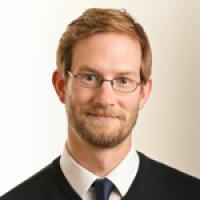
Graham Reynolds, Assistant Professor at the Peter A. Allard School of Law
Phone: 604-822-5559 / email: reynolds@allard.ubc.ca
Allard Hall profileMy research focuses on the intersection of intellectual property and human rights. I am also interested in issues involving access to justice and technology, property law, and property theory. At UBC, courses that I have taught include a seminar on intellectual property and human rights, a seminar on current issues in copyright, and property law. I also supervise students in the Allard School of Law's graduate program. Prior to joining the Allard School of Law, I was a faculty member at the Schulich School of Law at Dalhousie University in Halifax, Nova Scotia.
-
-
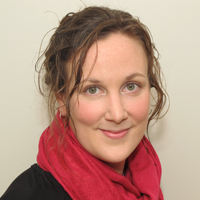
Julie Robillard, Assistant Professor of Neuroethics (Neurology) at the Division of Neurology, Department of Medicine
Phone: 604-822-0642 / email: jrobilla@mail.ubc.ca
WebsiteI am Assistant Professor of Neurology at UBC and faculty at the National Core for Neuroethics and at the Djavad Mowafaghian Centre for Brain Health. After completing a PhD in neuroscience looking at synaptic plasticity in the aging brain, I built on my thesis work in a way that emphasizes the human translational side of neuroscience. I lead a research program at the intersection of dementia, ethics and technology and has developed innovative techniques for the analysis of brain health and social media. My research is aimed at evaluating the quality and the ethics of online health information and of computerized tools for dementia screening and diagnosis. I also assess the impact of online resources and of computerized on health and well-being in older adults. In my spare time, I am an avid sailor and mountain biker.
-
-
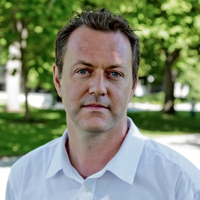
Mark Turin, Anthropology and First Nations Languages Program
Phone: 604-827-0613 / email: mark.turin@ubc.ca
WebsiteI am an anthropologist, linguist and broadcaster. I am an Associate Professor of Anthropology at the University of British Columbia and serve as Chair of the First Nations Languages Program. I also hold an appointment as Visiting Associate Professor at the Yale School Forestry and Environmental Studies and held the post of Program Director of the Yale Himalaya Initiative from 2011-2014. Together with Sienna Craig, I serve as co-editor of Himalaya, the longest running, open access, interdisciplinary and peer-reviewed journal of Himalayan studies. My research interests are language conservation, documentation and endangerment; biolinguistic diversity and oral traditions. For over twenty years, my regional focus has been the Himalayan region (particularly in Nepal, northern India and Bhutan), and more recently, the Pacific Northwest.
-
-

Jude Walker, Assistant Professor at the Department of Educational Studies
Phone: 604-822-4406 / email: jude.walker@ubc.ca
WebsiteIt is the transformative potential of adult education that drew me into the field almost two decades ago. I am interested in how people, ideas, policies and practices effect change in adult and higher education. Most recently, I have been exploring how academic researchers can influence government policy in adult education. I am also involved in research projects on higher education reform, the scholarship of teaching and learning, and student experiences in community-service learning. I teach courses in teaching adults, social movement learning, comparative education, and work and learning. I am originally from New Zealand but have been living in BC for 11 years.
-
-
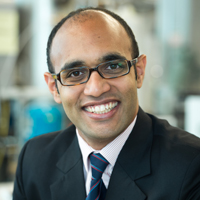
Vikramaditya Yadav, Assistant Professor of Chemical and Biological Engineering
email: vikramaditya.yadav@ubc.ca
WebsiteWhen I joined the University of Waterloo as an undergraduate student in chemical engineering, I coveted a career in Alberta's burgeoning petrochemical sector. I even interned at Imperial Oil during my first summer break from university. Then, one fine evening during second year, I stumbled upon a copy of Juan Enríquez's As the Future Catches You in the library and became instantly captivated with biological engineering. My journey over the past few years has taken me to Sanofi Pasteur, where I worked on designing next-generation vaccine manufacturing processes; the Massachusetts Institute of Technology, where I received my doctoral degree for a thesis on engineering enzymes and bacteria for synthesis of pharmaceuticals; and most recently at Harvard University, where I worked on biophysics and biological thermodynamics. Now, as an Assistant Professor at UBC, I lead a wonderful group of researchers working on wide-ranging topics such as metagenomics, bioenergy, water bioremediation, drug discovery and manufacturing, phytochemistry and Alzheimer's disease.
-
-
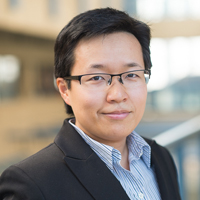
Jiaying Zhao, Assistant Professor at the Institute for Resources, Environment, and Sustainability; Assistant Professor in the Department of Psychology
email: jiaying.zhao@ubc.ca
WebsiteI am the Canada Research Chair (t2) in Behavioral Sustainability and an assistant professor in the Department of Psychology and the Institute for Resources, Environment and Sustainability at UBC. My research examines how resource scarcity consumes cognitive bandwidth and leads to suboptimal behaviors that further perpetuate the condition of scarcity. My lab is currently developing cutting-edge interventions and tools using behavioral insights to alleviate the cognitive burdens imposed by scarcity, and to promote subjective wellbeing, resource conservation, and environmentally responsible behavior. My work also strives to inform the design of policies and strategies to promote environmental, economic, and social sustainability.
-